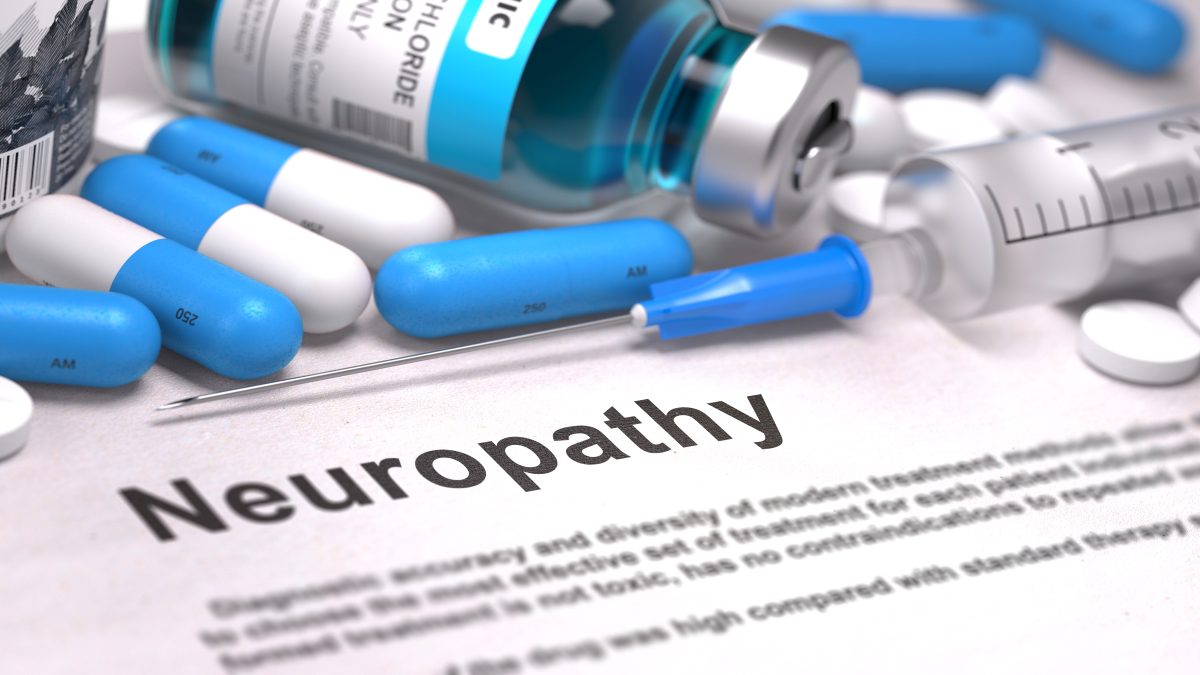Some medications used to treat cancer can cause a painful disorder known as chemotherapy-induced peripheral neuropathy or chemotherapy neuropathy. Peripheral neuropathy from chemo occurs when nerves of the body other than those in the spinal cord or brain are damaged. These nerves are responsible for providing feeling or sensation and movement in the legs and arms, and they also control the functioning of the bowels and bladder.
Symptoms of chemotherapy neuropathy
The signs and symptoms of chemotherapy neuropathy depend on which of the peripheral nerves are injured. Most often, symptoms include:
- Pain, which may: be continuous; come and go; feel sharp or shooting; feel like electric shocks or tingling; feel like burning
- Numbness or decreased sensation, resulting in: difficulty holding or grasping objects; stumbling or tripping while walking; problems with balance
- Increased sensitivity to temperature changes or pressure
- Muscle weakness and decreased muscle mass
- Swallowing difficulty
- The trouble with elimination, such as constipation or difficulty urinating
- Decreased or the lack of reflexes
- Changes in blood pressure
Chemo-induced neuropathy can be very painful and can cause problems with completing simple tasks, such as buttoning your clothes, writing, or picking up small objects. In severe cases, it can cause problems such as:
- Falls, leading to serious injury
- Problems breathing
- Paralysis
- Organ failure
Other causes of peripheral neuropathy
Many other conditions can cause peripheral neuropathy. These include:
- Diabetes
- Shingles
- Alcohol abuse
- Spinal cord injuries
- Infections, such as HIV
- Tumors
- Other treatments for cancer, such as radiation or surgery
- Nutritional deficiencies
- Peripheral vascular disease
- Certain autoimmune disorders
- Multiple myeloma
How does chemotherapy cause chemotherapy neuropathy?
When chemotherapy is given, the drugs affect the entire body. In addition, certain drugs affect specific nerves. The symptoms of neuropathy from chemo most often begin farthest away from the center of the body and move inward over time. The feet are often affected first, followed by the hands.
Most of the time, chemotherapy neuropathy affects both sides of the body. The symptoms can start any time after chemotherapy begins, and the symptoms usually get more severe as chemotherapy treatments continue.
Certain chemotherapy drugs are more often associated with chemo-induced neuropathy than others. These include:
- Platinum chemo drugs, such as oxaliplatin, carboplatin, and cisplatin
- Epothilone chemo drugs, such as ixabepilone
- Taxanes, such as cabazitaxel, docetaxel, and paclitaxel
- Plant alkaloids, like etoposide, vinorelbine, vincristine, and vinblastine
- Eribulin
- Bortezomib
- Thalidomide, pomalidomide, and lenalidomide
For some people, chemotherapy neuropathy only lasts a short time. In other patients, it can become a chronic, long-term condition. This can depend on individual factors, such as:
- The patient’s age
- If other medical conditions are present, that could also cause problems with the nerves
- What medications the patient is taking
- The patient’s genetic or family history
- What chemo drug is being used, or if other chemo drugs have been used before
- How much and how often the chemo drug is given
Can chemotherapy neuropathy be prevented?
Several different treatments have been tried for the prevention of chemotherapy neuropathy. Results of studies looking at the effectiveness of these treatments have not been conclusive. These preventative treatments have included:
- The use of antidepressants
- The use of anticonvulsants
- Vitamin E supplementation
- Supplementation with calcium and magnesium
- Treatment with glutathione
More research is needed in the use of these substances for the prevention of chemotherapy neuropathy before it can be determined if they are effective.
Other preventative treatments, like other dietary supplements and vitamins, are being researched to see if they can help prevent chemotherapy neuropathy if given before and after chemotherapy.
In addition to these, your physician may try to decrease your risk of chemotherapy peripheral neuropathy by:
- Giving smaller doses of chemotherapy two to three times weekly, rather than one larger dose weekly
- Administering the dose of chemo over a period of several hours, or even over a few days, rather than giving the drug over a shorter period of time
- Stopping chemotherapy if symptoms of chemotherapy neuropathy develop and then resuming treatment at a lower dose if symptoms subside
Click Here to read about treatment.
















Leave a Reply
You must be logged in to post a comment.